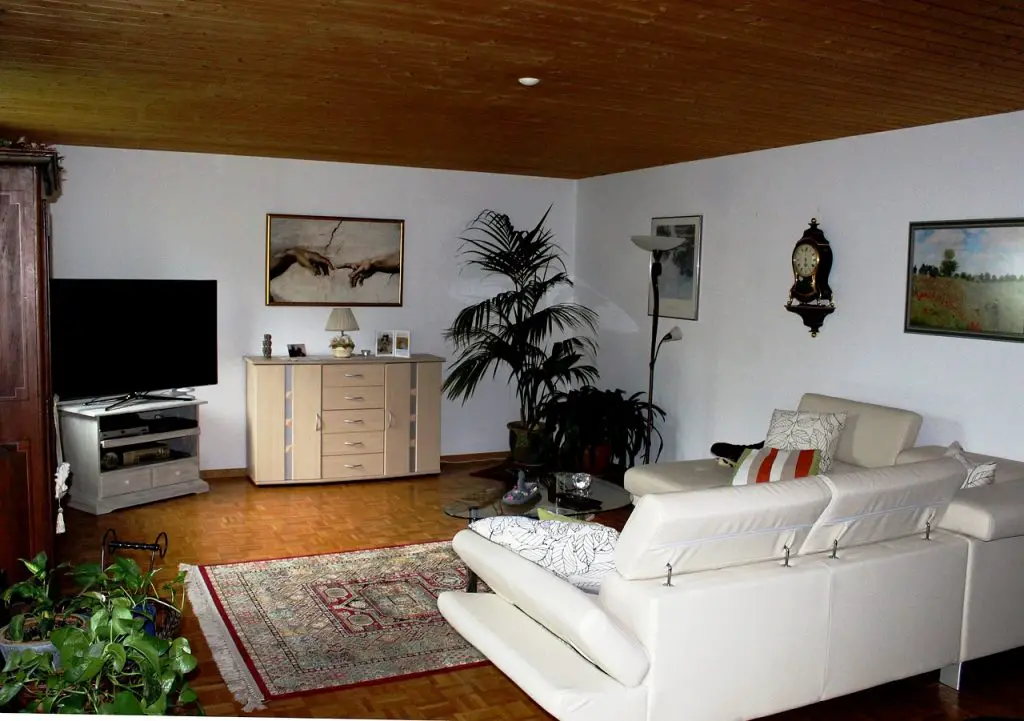
If you are living in a multiple-story apartment, then there is a chance that you deal with noisy neighbors every day. I can tell that such a situation is an annoying problem.
Unfortunately, dealing with such a problem is challenging in most cases. You might have already realized how important a peaceful environment is.
In most cases, the problem stems not from the noisy neighbors beneath but from upstairs. Those voices or sound systems hinder you from getting enough sleep or gaining focus on your cognitively demanding task.
The worse thing is that, sometimes, those noises from upstairs neighbors wake you up in the middle of the night or siesta time. The footsteps never fade and the echoes keep on bouncing from and to all corners of your room.
If getting enough sleep is your top priority, then this should be solved immediately. However, fixing the noise from upstairs neighbors can be another challenge.
In my experience, getting away from upstairs noise can be time and money consuming. It is incredibly hard unless you have a basic idea of how.
Fortunately, there are cheaper ways and techniques you can use to solve the problem. In this post, I will be sharing with you some of the best ways I learned along the way when I was in the process of escaping my noisy upstairs neighbors.
Related Tips: How to Soundproof Ceiling in Apartments
I hope that you’ll find this guide helpful to your current situation.
So, without further ado, let’s dive into the 6 steps you can use.
How to Reduce Noise from Upstairs Neighbors?
As mentioned, there are cheaper ways you can do to block the noise from upstairs. You can use the following techniques:
1. Determining the Source of the Noise
This step is very important. Before buying any soundproofing materials, you have to figure out the source of the noise first. The purpose of this step is to identify how big or small the source is. Then, decide what type of material you’ll be needing for the project.
One of the biggest mistakes you can do is jumping to the project without knowing how big the problem is. A smaller source of noise means you only need a small budget for a few materials.
For instance, if the source of the noise is the small hole or crevice on the ceiling of the apartment, you don’t need to buy huge soundproofing materials to block the noise.
In like manner, you don’t need to cover the whole ceiling to eliminate the noise. Dealing with this problem should be easy and quick.
Finding the source of the noise problem is a critical and important step to effectively reduce the noise from upstairs neighbors.
If you do it right, you can save hundreds and even thousands of dollars. And most importantly, you save your precious time.
2. Determine the Type of Noise
Now that you already found the source of the noise, the next thing you can do is figure out what type of noise entering your room.
Noise problems are not similar. Sometimes you complain about the loud music from upstairs neighbors. But sometimes you only complain about the footsteps that awake you during the night.
This step is also important because the materials needed will largely depend on the type of noise you are dealing with. That said, lesser noise problems may only need a simpler or even cheaper solution.
There are times when the noise is complex. People living in a highly populated residential usually experience this type of noise.
In this case, you might need a more reliable solution. Vibrating sound is more disturbing than other noise sources. If you are dealing with every day, you might want to seek for an immediate solution.
One of the best ways you can do with your situation is to use soundproofing materials designed for this purpose.
Soundproofing materials are helpful in blocking the outside noise and prevent them from entering your room.
If you want to prevent the sound from echoing in the entire room, you can use the sound dampening materials.
But if the noise is coming from upstairs neighbors, the first step to resolve the problem is diplomacy. Try to ask your upstairs neighbors to apply a blanket on their floor.
This technique though may or may not work. This is because not all neighbors are considerate of others.
But if you succeed with this technique, it can cut the noise in half. The footsteps sound that is disturbing your sleep for quite a while now will disappear.
But if the technique does not work for you, that means that you should use some techniques that can be implemented in your room.
You can buy and use soundproofing materials and soundproof your ceiling. I have a detailed guide on how to soundproof a ceiling in an apartment. I hope it will help.
3. Increase the Density of the Ceiling

In most cases, the best thing you can do to reduce the noise from upstairs neighbors is to soundproof the ceiling. However, you can only do that if the ceiling is sturdy enough to accommodate the soundproofing materials.
So I suggest that you check the density of the ceiling first before starting the soundproofing project.
The more soundproofing materials you install on the ceiling, the better the result you’ll get. There are a number of choices when it comes to soundproof materials for your project.
For a better chance of blocking the sound, you can add layers of soundproofing materials. If you want, use drywall. This helps reduce the noise from upstairs neighbors by 80%.
If possible, make multiple layers of drywall for maximum result. The thicker the defense system against the noise, the quieter your room.
Making layers of drywall should be handy. For easy installation, you can use a sealant like the Green Glue (click here to check this product on Amazon).
You can find other sealants out there that you might love. But personally, the green glue is the one that I use in my soundproofing projects at home. It is reliable and super easy to apply. With this material, you can do the project yourself.
Although drywall can help reduce the noise from upstairs neighbors, it is not the best remedy though. There are other materials that can do the job done way better.
For better results, I recommend the use of soundproof paint (click here to see this product on Amazon). This paint is thick enough to cover small holes while boosting the aesthetic quality of the ceiling.
Therefore, the function of soundproof paint is not only to reduce the noise from upstairs neighbors but also to make the interior of the room better.
Another material I recommend is the Soundproof Foam Panels (click here to see these materials on Amazon). The good thing about soundproof foam panels is that they are easy to install and can definitely boost the appearance of your room.
If you install this material correctly, you’ll be able to reduce the noise from upstairs neighbors dramatically.
4. Create a Drop Ceiling
If you want to increase your chance of successfully reduce the noise from upstairs neighbors, you can make and drop ceiling.
A drop ceiling is another layer of ceiling just below the original ceiling. So basically, what you have is a two-level of ceilings that could serve as a noise-blocking system.
The space between the original ceiling and the drop ceiling is called the plenum space. The noise will be trapped in this area as it enters making it unable to reach the room.
But how does the plenum space reduce the noise from upstairs neighbors? The answer is that the plenum space is filled with compressed air which is not a good medium for the sound to travel with.
As a result, the plenum space is another great strategy to keep the room safe from the upstairs noise.
This strategy is perfect when you are dealing with impact noise. If applied correctly, you won’t hear vibrations, footsteps and other disturbing impact noise from your upstairs neighbors.
However, if you are in a tight budget for your project, this might not be the perfect strategy for you. It will cost you money and time to make a drop ceiling. But it is definitely worthy of every penny that you’ll spend.
A drop ceiling is highly effective and durable in blocking outside noise especially the impact that you commonly hear when you live in an apartment.
5. Use White Noise
If all the techniques shared above are not feasible for your situation, the best option remaining is the use of a white noise machine.
White noise machine (click here to see this product on Amazon) is designed to produce a soothing sound that supersedes the noise from upstairs. The good thing about this is that there’s no need for construction and indoor modification.
All you need to do is buy a white noise machine and play relaxing music. You’ll save a lot of time and effort.
6. Wear Earplugs
Another quick remedy to reduce noise from upstairs neighbors is to wear earplugs. These small gadgets can do a very good job of eliminating noise from disturbing neighbors.
You can buy the best earplug (click here to see this product on Amazon) online if you want. But first, make sure that you read the customer reviews to help you figure out what works for you best.
How to Reduce Noise from Upstairs Neighbors?
Dealing with noisy upstairs neighbors is stressful. Fortunately, there are a number of ways you can do to solve the problem effectively.
Some of the techniques shared above are affordable and easy to implement. Others, however, would cost money and a lot of effort.
Depending on the situation, one technique may be more effective than others. So choosing the appropriate technique is crucial for the success of your soundproofing project.
In order to do this, the first step is to determine the source of the noise. Knowing the real source of the noise will give you a better idea of what material should you use for successful results.
All the techniques I shared in this post may or may not work for your situation. The severity of the problem affects the material choice and implementation strategies.
Nonetheless, I hope that I was able to give you basic ideas on how you can reduce noise from upstairs neighbors.
For more information about soundproofing, read my Soundproofing Guide.
